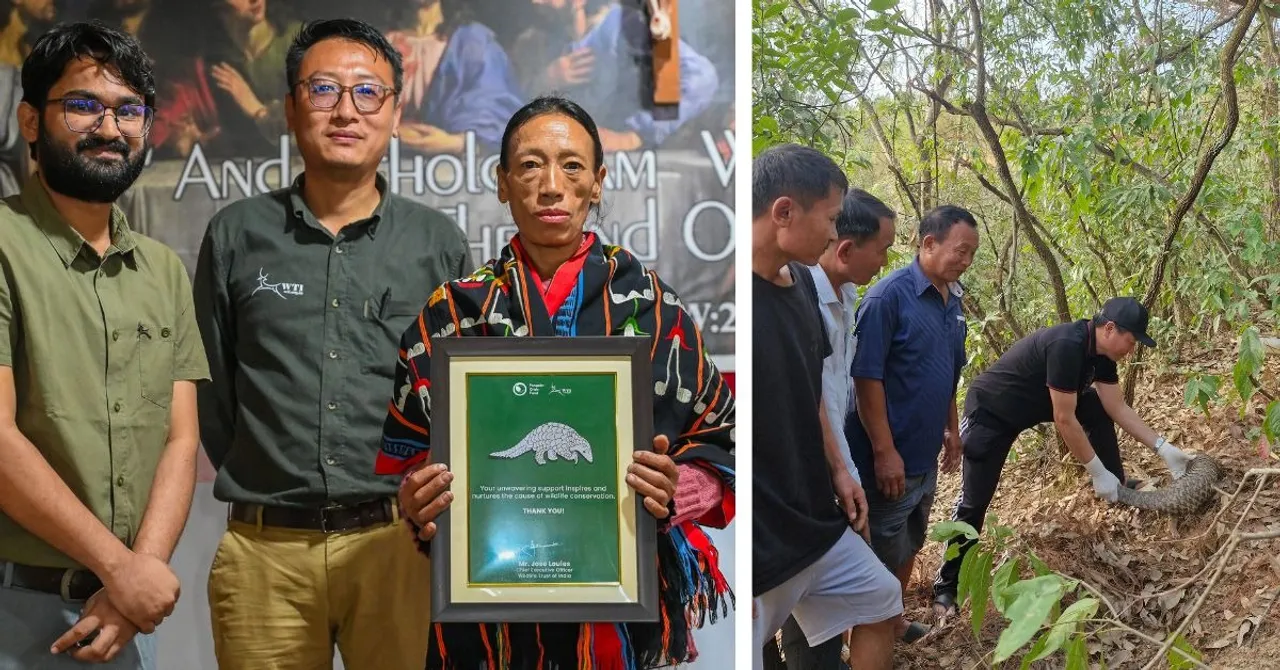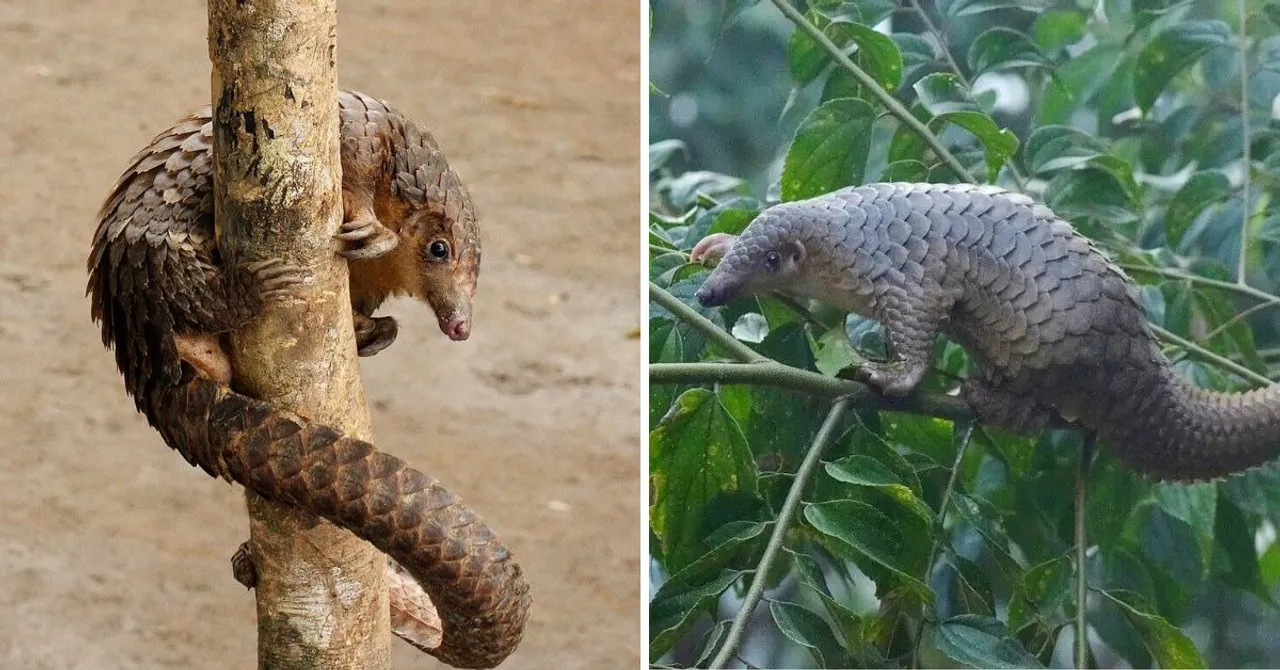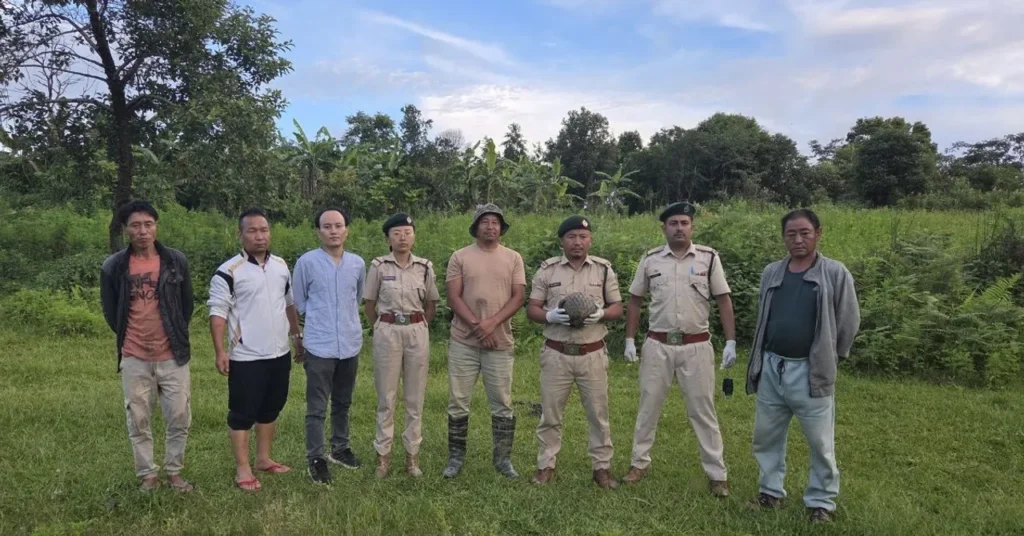In the remote hills of Northeast India, where wildlife hunting has long been a part of tradition, a quiet but powerful revolution is taking shape. A movement that began with concern for a shy, elusive creature — the pangolin — has today united 252 villages, mobilised thousands of locals, empowered youth, and turned football into a tool for wildlife protection.
The pangolin, often called the “world’s most trafficked mammal,” has been disappearing rapidly due to illegal hunting and trade. Between 2018 and 2022 alone, over 1200 pangolins were found in illegal trade across India. In Manipur and other northeastern states, the demand for pangolin scales and meat — used in traditional medicines and considered a delicacy — continued fueling a dangerous black market.
But the Wildlife Trust of India (WTI) decided to fight back with a strategy rooted not in punishment — but in people.
A Community-Led War Against Trafficking
In 2023, WTI launched its Countering Pangolin Trafficking Project, supported by the Pangolin Crisis Fund and the Manipur Forest Department. For the first time, conservationists placed trust in local communities — the very people often targeted by poachers — and turned them into guardians of the species.
The impact has been extraordinary:
67 traffickers arrested
11 pangolins saved
182.61 kg of pangolin scales seized
25 enforcement operations supported across India
Two species found in India — the Indian pangolin and the critically endangered Chinese pangolin — are both protected under the highest category of Indian wildlife law. Yet trafficking continued due to demand and porous borders in the Northeast.

Football: The Unexpected Hero of Conservation
Perhaps the most remarkable chapter in this movement is the Pangolin Cup 2025, launched in collaboration with the Senapati District Olympic Association and the Manipur Forest Department.
This wasn’t just a sports event — it was a cultural shift.
Using football — the heartbeat of Manipur — WTI created an emotional connection between youth and wildlife. Players wore pangolin-themed jerseys, matches were dedicated to wildlife protection, and conversations around conservation became a part of village life.
What began as a tournament quickly evolved into a movement.
Social Media Sleuthing to Counter Online Trade
WTI’s team also tapped into the digital world. By tracking suspicious keywords like pangolin tester, pangolin scales for sale, bajrakit khipri and more, they uncovered hidden online networks of illegal wildlife traders.
This digital monitoring helped enforcement teams conduct eight major operations, leading to seizures across Assam, Meghalaya, Telangana, West Bengal, Himachal Pradesh, Odisha, and Maharashtra.

252 Villages Make History
The biggest win came from the people themselves.
●252 Tangkhul Naga villages in Manipur announced a complete ban on hunting, consuming, or trading pangolins.
●Four villages in Nagaland’s Kiphire district joined the movement.
●Six Chinese pangolins rescued and released back into the wild.
What once seemed impossible — changing deep-rooted hunting traditions — is now a celebrated community victory.
A New Hope for India’s Pangolins
From football fields to forest trails, from classrooms to community halls, people across Northeast India are now saying the same thing:
Pangolins belong to the wild — and we will protect them.
WTI’s project shows that real conservation is not about imposing rules but about empowering people. With hundreds of villages now standing together, India’s most vulnerable mammal finally has a fighting chance.


